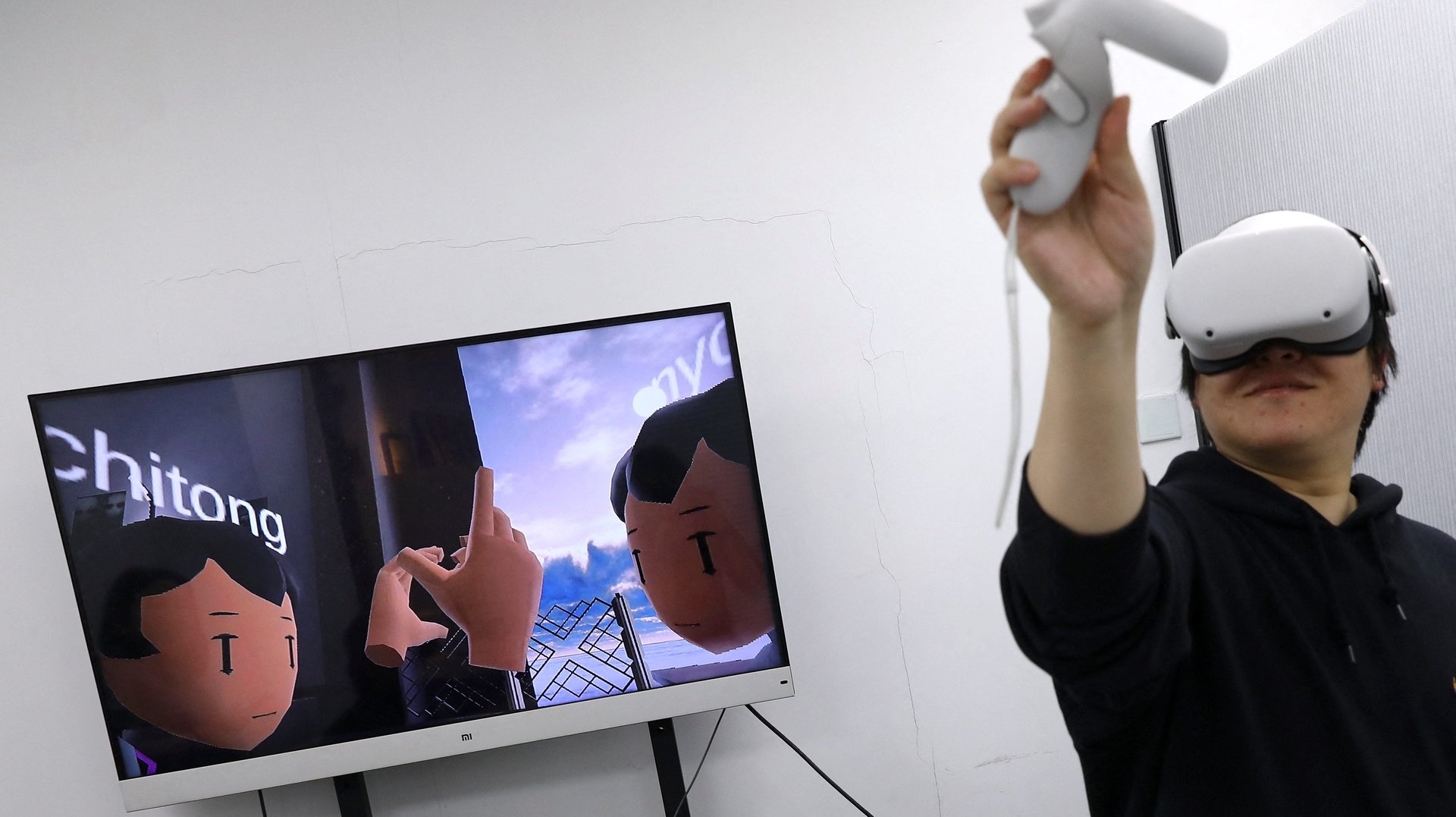Facebook may be flagging but Meta’s VR platform thrives
Mark Zuckerberg, now $31 billion poorer thanks to Facebook’s first ever quarterly decline in daily users, might find consolation this week in his company’s virtual reality business.


Mark Zuckerberg, now $31 billion poorer thanks to Facebook’s first ever quarterly decline in daily users, might find consolation this week in his company’s virtual reality business.
Although Facebook (now known as Meta) hasn’t revealed how many users it has on its Oculus VR platform, new data from Steam—the largest online distributor of PC video games, with 120 million monthly users—suggest Meta’s virtual reality (VR) business is dominant and growing fast.
Meta devices account for 67% of all VR hardware used on the Steam platform. The next most popular headset, the Valve Index, accounts for just 14% of all devices, followed by HTC at 11% and Microsoft at around 5%.
Steam, which is owned by the same company that makes the Valve Index, regularly releases user statistics related to processor type and hardware used. Its latest survey covers the period from August 2020 to January 2022.
How Meta came to dominate the virtual reality space
In addition to the dominance of Meta’s Oculus Quest and Rift headsets on Steam, the survey showed a 6.39% increase in Meta Quest 2 users over the same period. And since 2019, Meta’s overall share of Steam users, on devices like the Quest 1 and the Oculus Rift, has grown by 43%.
Part of the reason for the massive uptick is that the Meta Quest 2, which is now the company’s leading VR device, is mobile, doesn’t require a computer, and, at $299, is the least expensive full-featured VR headset on the market.
So while Meta may be playing catchup with the likes of Microsoft, Google, and Snap in the realm of augmented reality (AR), which is currently more of a business tool than gaming-dominated VR, when it comes to the latter, Zuckerberg’s metaverse bet is paying off where consumer activity is currently heaviest.
Facebook’s loss may be the beginnings of Meta’s VR gain
Despite some unverified reports to the contrary, Meta’s VR head, Andrew Bosworth, says the company has yet to reach 10 million VR users, which makes its VR arm minuscule compared to the nearly 3 billion users on Facebook.
However, the gradual slowing of Facebook’s daily social media users, as its VR users spike, indicates that a shift is in play that hasn’t been fully accounted for by market analysts. Also, that dip in Facebook daily users may be overemphasized, as its monthly active users still rose last quarter, from 2.91 billion to 2.912 billion.
Meta spent $10 billion in 2021 developing its metaverse VR and AR products which only generated $2.27 billion in revenue. If Zuckerberg’s plan is to eventually get 1 billion people onto his VR platform, that investment could just be the thing that secures the company’s place in the future of the metaverse.